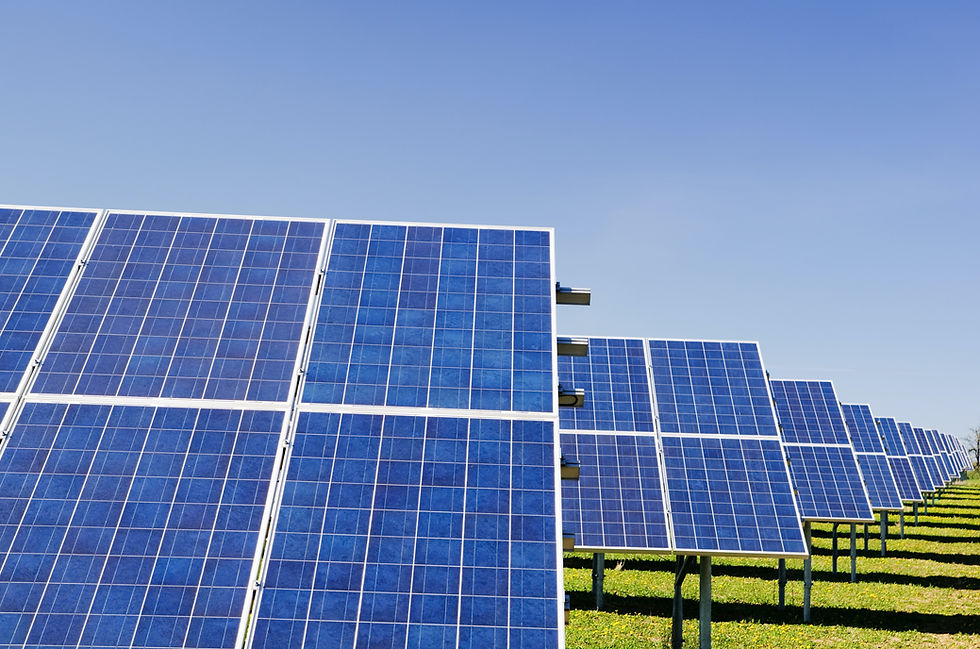
In the pursuit of a greener and more sustainable future, solar energy has taken center stage as a clean and renewable power source. The gleaming solar panels that dot landscapes represent more than just cutting-edge technology; they symbolize a commitment to reducing carbon emissions and harnessing the power of the sun. However, beyond the initial installation and activation, one critical factor often goes overlooked: maintenance. In this blog post, we'll delve into why maintenance is essential for solar sites and the profound impact it has on the efficiency, lifespan, and overall success of solar energy systems.
The Power of Regular Maintenance
Solar energy, like any complex technology, require regular maintenance to ensure they operate optimally over time. Neglecting maintenance can lead to a range of issues that hinder performance and undermine the benefits of solar energy:
1. Maximizing Efficiency: Electrical equipment that operates daily at very high power creates temperature variations and this variation can impact the components and connections. Routine inspections and testing will ensure these operate with maximum efficiency and availability. Dust, dirt, debris, and bird droppings can accumulate on solar modules, reducing their efficiency by blocking sunlight. Regular cleaning ensures that panels can capture the maximum amount of sunlight and generate the highest possible energy output.

2. Identifying and Resolving Issues: Routine maintenance allows technicians to detect and address problems early, whether it's a malfunctioning inverter, trackers out of position, a damaged panel, or a wiring issue. Timely repairs prevent further damage, downtime, and even environmental risks.
3. Extending Lifespan: Well-maintained solar equipment have a longer lifespan. Investing in maintenance helps protect your initial investment by ensuring that your solar system continues to generate energy efficiently for years to come.
4. Optimizing ROI: Solar systems are a significant investment, and regular maintenance ensures you're getting the most out of it. Improved energy generation translates to better returns on investment (ROI) and a quicker payback period.
Check out our guides and resources available here.
Weathering the Elements
Solar modules are designed to withstand the elements, but they are still exposed to various environmental factors that can impact their performance:
1. Weather Extremes: Extreme temperatures, hail, heavy rain, and snow can take a toll on solar panels. Maintenance helps identify and address any damage caused by these weather events.
2. Corrosion and Degradation: Over time, exposure to moisture and UV radiation can lead to corrosion and material degradation. Regular maintenance prevents these issues from escalating and compromising the efficiency of the panels.
Check out our guides and resources available here.
Professional Maintenance vs. DIY
While it might be tempting to clean your solar modules yourself, professional maintenance offers several advantages:
1. Expertise: Trained technicians understand the intricacies of solar systems and can identify potential issues that an untrained eye might miss.

2. Safety: Professionals are equipped with the necessary safety gear and protocols to ensure their well-being during maintenance.
3. Equipment: Professionals have access to specialized equipment and tools that are designed to clean solar panels effectively without causing damage.
Check out our guides and resources available here.
Conclusion
Solar energy holds tremendous promise as a clean, renewable power source. To harness this potential and reap the benefits, regular maintenance is essential. By ensuring the cleanliness, efficiency, and overall health of solar panels, maintenance extends the lifespan of the system, maximizes energy generation, and optimizes your investment. Remember that a small investment in maintenance today can lead to significant savings and a greener future for generations to come.







Comments